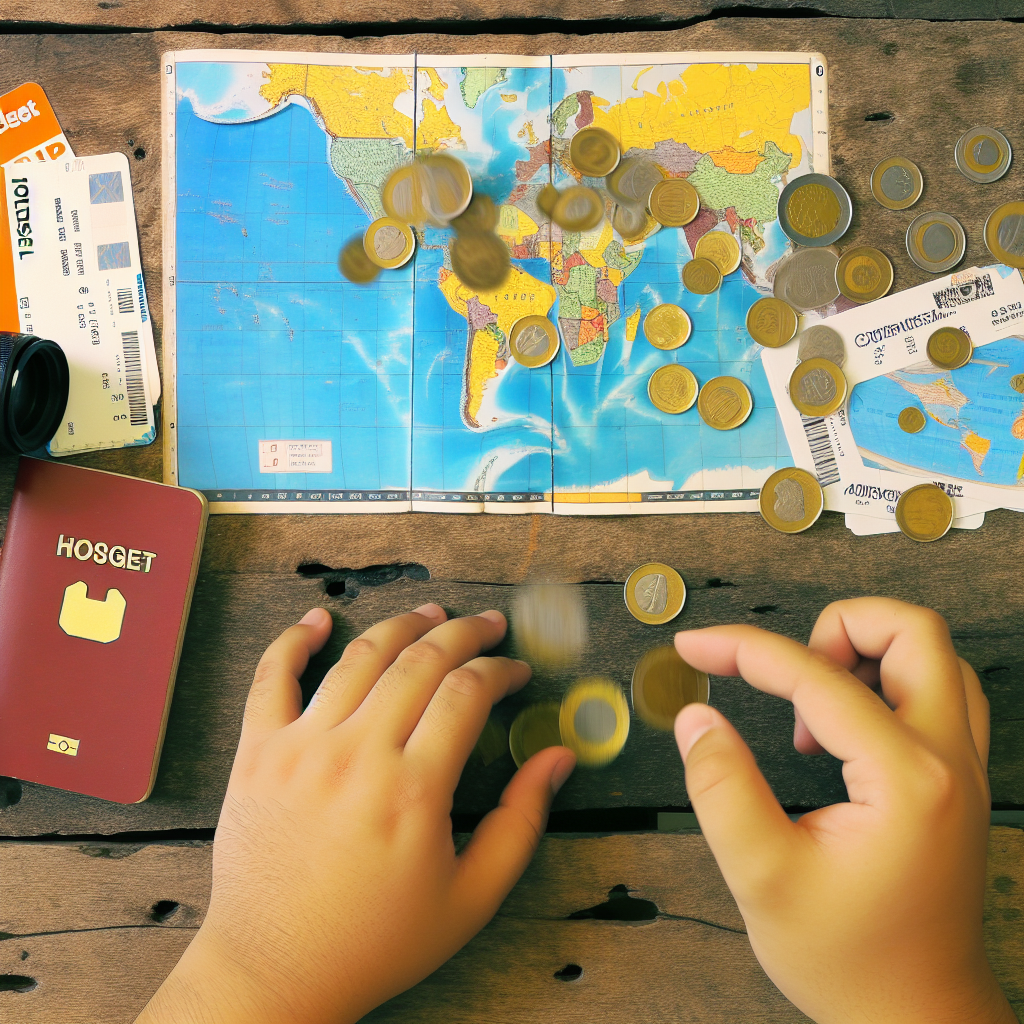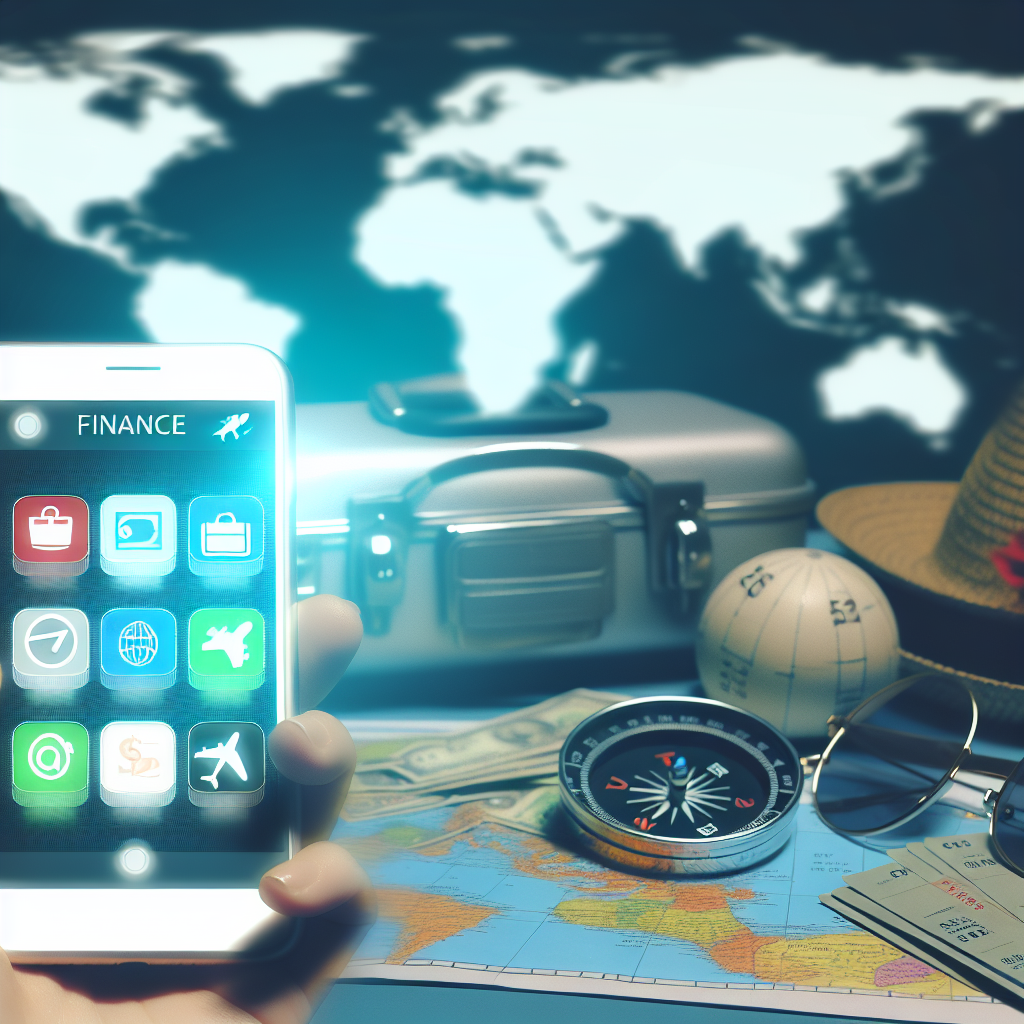-
Table of Contents
- Creating a Travel Budget: Tips and Tricks for Effective Money Management
- Saving Strategies for Adventurers: How to Cut Costs and Maximize Your Travel Budget
- Budgeting for Adventure: Essential Expenses to Consider When Planning Your Trip
- Financial Planning for Travelers: How to Stay on Budget and Still Have an Amazing Adventure
“Budgeting for Adventure: Master the Art of Money Management on Your Travels”
Creating a Travel Budget: Tips and Tricks for Effective Money Management
Budgeting for Adventure: Effective Money Management While Traveling
Traveling is an exciting and enriching experience that allows us to explore new places, immerse ourselves in different cultures, and create lasting memories. However, it can also be a costly endeavor if not approached with careful planning and effective money management. Creating a travel budget is essential to ensure that you can make the most of your adventure without breaking the bank. In this article, we will provide you with some tips and tricks for effective money management while traveling.
The first step in creating a travel budget is to determine your overall trip expenses. This includes transportation, accommodation, meals, activities, and any other miscellaneous costs. Researching the average prices in your destination can give you a rough estimate of how much you will need to allocate for each category. It is important to be realistic and factor in unexpected expenses that may arise during your trip.
Once you have a clear idea of your expenses, it is time to set a budget for each category. Start by prioritizing your spending based on what is most important to you. For example, if you are a food lover, you may want to allocate a larger portion of your budget to dining out at local restaurants. On the other hand, if you are more interested in exploring historical sites, you may want to allocate more funds for entrance fees and guided tours. Remember to be flexible and adjust your budget as needed.
Tracking your expenses is crucial to ensure that you stay within your budget. There are various tools and apps available that can help you keep track of your spending. By recording every purchase, you will have a clear picture of where your money is going and can make adjustments if necessary. It is also a good idea to keep all your receipts, as some expenses may be tax-deductible or reimbursable.
Another important aspect of effective money management while traveling is finding ways to save on expenses. One way to do this is by booking your flights and accommodations in advance. Airlines and hotels often offer discounted rates for early bookings. Additionally, consider staying in budget-friendly accommodations such as hostels or vacation rentals instead of expensive hotels. Cooking your own meals or eating at local street vendors can also help you save on food expenses.
Being mindful of your spending habits can go a long way in managing your money effectively while traveling. Avoid unnecessary splurges and impulse purchases by asking yourself if an item or experience is truly worth the cost. It is also a good idea to set a daily spending limit and stick to it. By being conscious of your spending, you can make your travel budget last longer and have more funds for memorable experiences.
Lastly, it is important to have a contingency plan in case of emergencies or unexpected expenses. Set aside a portion of your budget as an emergency fund that can be used for unforeseen circumstances such as medical emergencies or lost belongings. Having this safety net will give you peace of mind and ensure that you can handle any unexpected situations that may arise during your trip.
In conclusion, effective money management is essential for a successful and enjoyable travel experience. By creating a travel budget, setting spending limits, tracking expenses, and finding ways to save, you can make the most of your adventure without overspending. Remember to be flexible and adjust your budget as needed, and always have a contingency plan in case of emergencies. With careful planning and mindful spending, you can embark on your adventure with confidence and peace of mind.
Saving Strategies for Adventurers: How to Cut Costs and Maximize Your Travel Budget
Budgeting for Adventure: Effective Money Management While Traveling
Traveling is an exhilarating experience that allows us to explore new places, immerse ourselves in different cultures, and create lasting memories. However, it can also be an expensive endeavor, especially for adventurers on a tight budget. That’s why effective money management is crucial when it comes to planning and executing your travel plans. In this section, we will discuss some saving strategies for adventurers, helping you cut costs and maximize your travel budget.
One of the first steps in saving money while traveling is to set a realistic budget. Determine how much you can afford to spend on your trip and allocate funds accordingly. This will help you prioritize your expenses and avoid overspending. It’s important to consider all aspects of your trip, including transportation, accommodation, meals, activities, and souvenirs. By having a clear understanding of your financial limitations, you can make informed decisions and avoid unnecessary expenses.
When it comes to transportation, there are several ways to save money. Consider booking your flights well in advance to take advantage of early bird discounts. Additionally, be flexible with your travel dates and consider flying on weekdays or during off-peak seasons when prices tend to be lower. Another cost-saving option is to explore alternative modes of transportation, such as trains or buses, which can be more affordable than flying.
Accommodation is another area where you can cut costs. Instead of staying in expensive hotels, consider alternative options such as hostels, guesthouses, or even renting a room or apartment through platforms like Airbnb. These options are often more budget-friendly and can provide a unique and authentic experience. Additionally, consider staying in less touristy areas, as prices tend to be lower compared to popular tourist destinations.
Eating out can quickly drain your travel budget, so it’s important to be mindful of your dining expenses. Instead of eating at restaurants for every meal, consider cooking some of your meals yourself. This can be easily done if you have access to a kitchen in your accommodation. Not only will this save you money, but it can also be a fun and rewarding experience to shop for local ingredients and prepare your own meals. When dining out, look for local eateries or street food stalls, as they often offer delicious and affordable options.
Activities and attractions can also be a significant expense while traveling. Research and plan ahead to find free or low-cost activities in your destination. Many cities offer free walking tours or have museums and attractions with discounted or free admission on certain days. Take advantage of these opportunities to explore and learn about the local culture without breaking the bank. Additionally, consider participating in outdoor activities such as hiking or cycling, which are often free or have minimal costs.
Lastly, don’t forget to set aside some money for unexpected expenses or emergencies. It’s always a good idea to have a contingency fund to cover any unforeseen circumstances that may arise during your trip. This will give you peace of mind and ensure that you can handle any unexpected situations without compromising your overall travel budget.
In conclusion, effective money management is essential for adventurers looking to make the most of their travel budget. By setting a realistic budget, being mindful of transportation and accommodation costs, being strategic with dining expenses, and seeking out affordable activities, you can cut costs and maximize your travel experience. Remember, it’s not about how much money you spend, but rather how wisely you spend it that will ultimately determine the success of your adventure. Happy travels!
Budgeting for Adventure: Essential Expenses to Consider When Planning Your Trip
Budgeting for Adventure: Essential Expenses to Consider When Planning Your Trip
Traveling is an exciting and enriching experience that allows us to explore new places, immerse ourselves in different cultures, and create lasting memories. However, it’s important to plan and budget for your trip to ensure that you can make the most of your adventure without breaking the bank. In this article, we will discuss some essential expenses to consider when planning your trip, helping you manage your money effectively while still enjoying all the wonders that travel has to offer.
First and foremost, transportation is a crucial expense to consider when budgeting for your adventure. Whether you’re flying to a far-off destination or taking a road trip, transportation costs can quickly add up. Researching and comparing prices for flights, train tickets, or rental cars can help you find the best deals and save money. Additionally, consider using public transportation or walking whenever possible to cut down on transportation expenses during your trip.
Accommodation is another significant expense to factor into your travel budget. Depending on your preferences and the destination you’re visiting, accommodation costs can vary greatly. Researching different options, such as hotels, hostels, or vacation rentals, can help you find affordable yet comfortable places to stay. Additionally, consider booking in advance or during off-peak seasons to take advantage of lower prices.
Food and dining expenses are also essential to consider when budgeting for your trip. Eating out at restaurants for every meal can quickly drain your funds, so it’s important to plan accordingly. Consider cooking some of your meals or opting for street food and local markets, which often offer delicious and affordable options. Additionally, research restaurants and cafes in advance to find budget-friendly options that still allow you to experience the local cuisine.
Activities and attractions are an integral part of any travel experience, but they can also be a significant expense. Researching and prioritizing the activities and attractions you most want to see can help you allocate your budget effectively. Look for free or low-cost activities, such as visiting parks, museums with discounted admission, or exploring local neighborhoods on foot. Additionally, consider purchasing attraction passes or city cards that offer discounts on multiple attractions.
Another expense to consider when budgeting for your adventure is travel insurance. While it may seem like an unnecessary cost, travel insurance can provide peace of mind and protect you from unexpected expenses, such as medical emergencies or trip cancellations. Research different insurance options and choose a plan that suits your needs and budget.
Lastly, don’t forget to budget for miscellaneous expenses that may arise during your trip. These can include souvenirs, transportation within the destination, tips, and unforeseen expenses. Setting aside a small amount of money for these miscellaneous expenses can help you avoid any financial surprises and ensure a smooth and enjoyable trip.
In conclusion, budgeting for your adventure is essential to ensure that you can make the most of your trip without overspending. By considering essential expenses such as transportation, accommodation, food, activities, travel insurance, and miscellaneous costs, you can effectively manage your money while still enjoying all the wonders that travel has to offer. Remember to research and compare prices, prioritize your expenses, and look for affordable options to make your adventure both memorable and budget-friendly. Happy travels!
Financial Planning for Travelers: How to Stay on Budget and Still Have an Amazing Adventure
Budgeting for Adventure: Effective Money Management While Traveling
Traveling is an exciting and enriching experience that allows us to explore new places, immerse ourselves in different cultures, and create lasting memories. However, it can also be a costly endeavor if not properly planned and managed. That’s why financial planning for travelers is crucial to ensure that you can stay on budget and still have an amazing adventure.
The first step in effective money management while traveling is setting a realistic budget. Before embarking on your journey, take the time to research the cost of living in your destination, including accommodation, transportation, meals, and activities. This will give you a rough estimate of how much money you will need for your trip. It’s important to be honest with yourself and set a budget that you can realistically stick to.
Once you have determined your budget, it’s time to start tracking your expenses. Keeping a record of every penny you spend will help you stay accountable and identify areas where you may be overspending. There are many budgeting apps and tools available that can make this process easier. By tracking your expenses, you can make adjustments as needed and ensure that you are staying within your budget.
Another important aspect of financial planning for travelers is prioritizing your expenses. While it’s tempting to splurge on every activity and experience, it’s important to be mindful of your budget and prioritize the things that are most important to you. This may mean skipping some tourist attractions or opting for budget-friendly accommodations and meals. Remember, it’s not about how much money you spend, but the experiences and memories you create.
One effective way to save money while traveling is by taking advantage of discounts and deals. Many attractions, restaurants, and accommodations offer discounts for students, seniors, or members of certain organizations. Additionally, booking in advance or during off-peak seasons can often result in significant savings. Researching and planning ahead can help you find the best deals and stretch your budget further.
It’s also important to be mindful of your spending habits while traveling. It’s easy to get caught up in the excitement and overspend on unnecessary items or impulse purchases. Before making a purchase, ask yourself if it aligns with your budget and if it’s something you truly need or will bring value to your trip. By being mindful of your spending, you can avoid unnecessary expenses and stay on track with your budget.
Lastly, it’s important to have a contingency plan in case of unexpected expenses or emergencies. While we hope for smooth sailing during our travels, it’s always wise to be prepared for the unexpected. Set aside a portion of your budget as an emergency fund to cover any unforeseen expenses that may arise. This will give you peace of mind and ensure that you can handle any financial challenges that come your way.
In conclusion, financial planning for travelers is essential to ensure that you can stay on budget and still have an amazing adventure. By setting a realistic budget, tracking your expenses, prioritizing your spending, taking advantage of discounts, being mindful of your spending habits, and having a contingency plan, you can effectively manage your money while traveling. Remember, it’s not about how much money you spend, but the experiences and memories you create. So, plan wisely, stay on budget, and enjoy every moment of your adventure.






